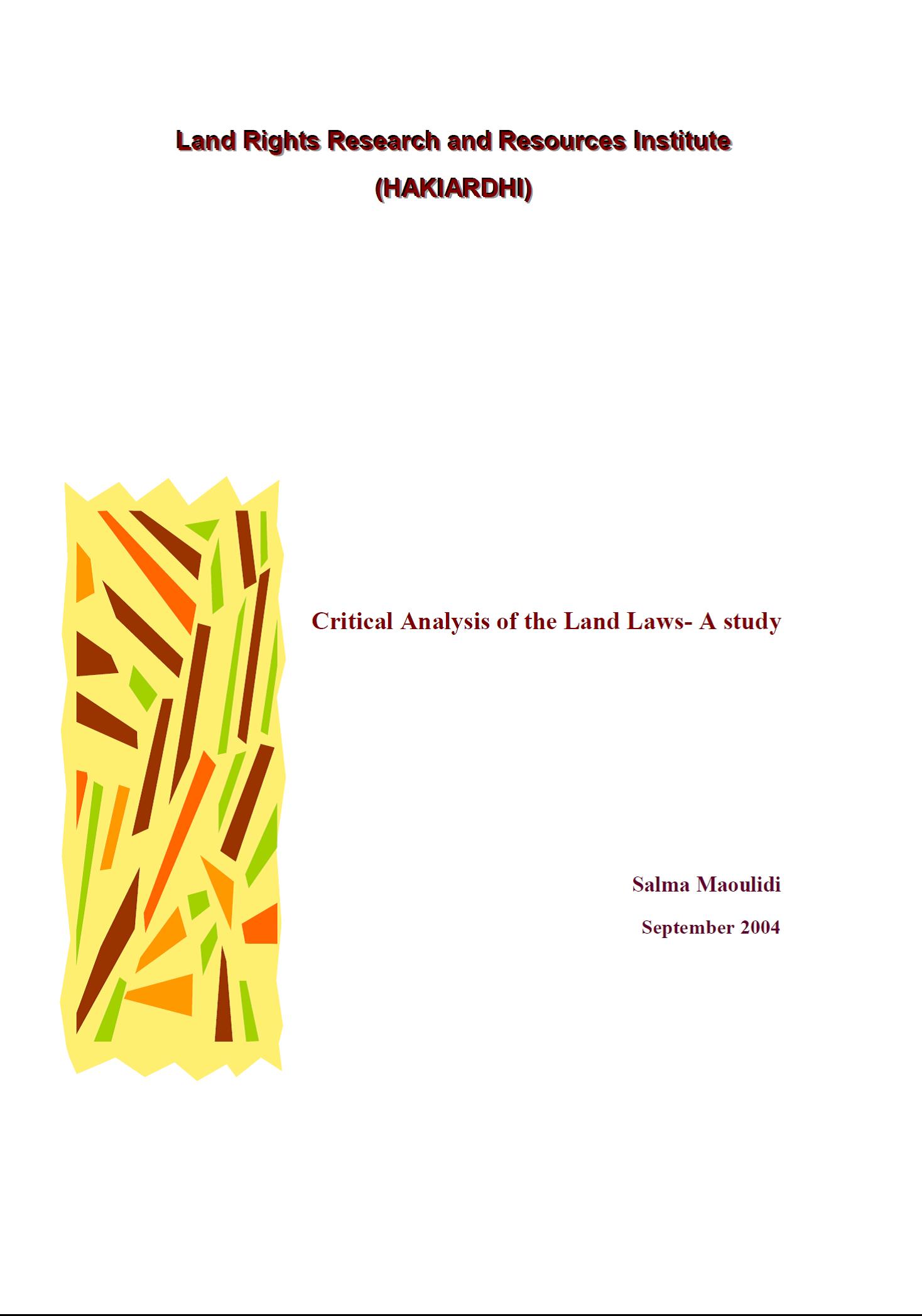Resource information
The task at hand entails the critical review of the Land Laws of Tanzania, chiefly Act No.4 and Act No.5, 1999 and their subsequent revisions. This could not be done out of context, or by confining oneself solely to the statutes. It was pertinent to review the factors and processes that informed the legislation. Towards this end, an extensive literature review on various aspects related to land reforms in Tanzania was done.
A reasonable amount of references were available for review, most being by academics and researchers. The bulk of the work is thus technical and academic focusing on the historical than the discursive. Feminist and women‟s organizations tried to balance the discussion by emphasizing the gender dimension of the land question but because it was often in reaction to the perceived shortcomings of the core analysis, it did not necessarily offer new inroads to the debate.
The most active debates concerned policy directions and legal provisions before their adoption by the legislature. A considerable amount of critique is thus on the Land Policy and the Land Act Bill, not on the Land Act or its implementation. Remarkably, the Land Commission Report continues to serve as the blue print for advocacy on land matters and forms the basis for most discussions, a fact that raises a fundamental question in so far as the agenda of land advocates is concerned i.e. whether the debate has moved beyond what could be to what is?
Indeed, this draws attention to a deeper dilemma facing land activists- since the passage of the Land Act activist action has waned. Yet, all is not yet done! The momentum at the height of the reform process focused on policy and legal options, leaving operational aspects unexplored. Likewise, a mass movement to legitimize and transform the advocacy agenda beyond visible individuals and institutions engaged in civil and intellectual protest is yet to be amassed thereby defeating the vision of democratizing the land debate- equality, people‟s participation and security for livelihoods and tenure.
This review, therefore, attempts to discern the active interaction that shaped and continues to shape the discourse over the policy and legal framework towards a viable land tenure system and structure in Tanzania. Perhaps, for the first time the breadth of views on the matter are posited against each other, not only with the view to discredit and challenge, but with a view of capturing the dynamism of the reform process and enactment so as to enrich the analysis towards a more holistic appreciation of the advocacy content and process informing legislative reforms.


